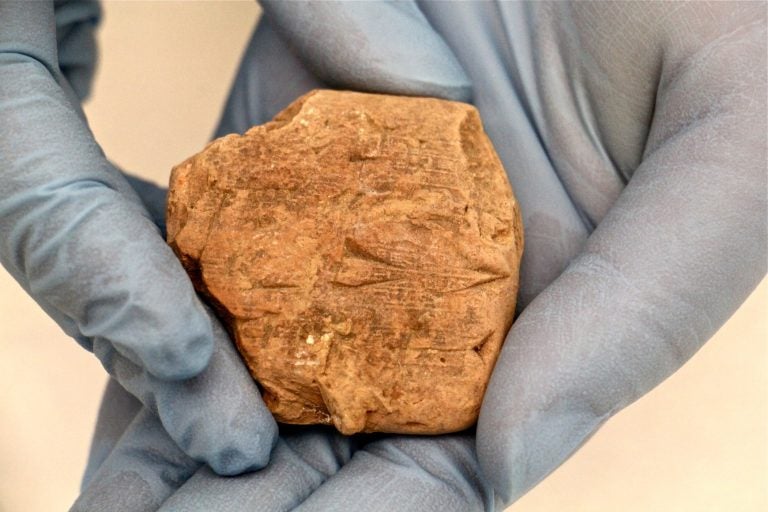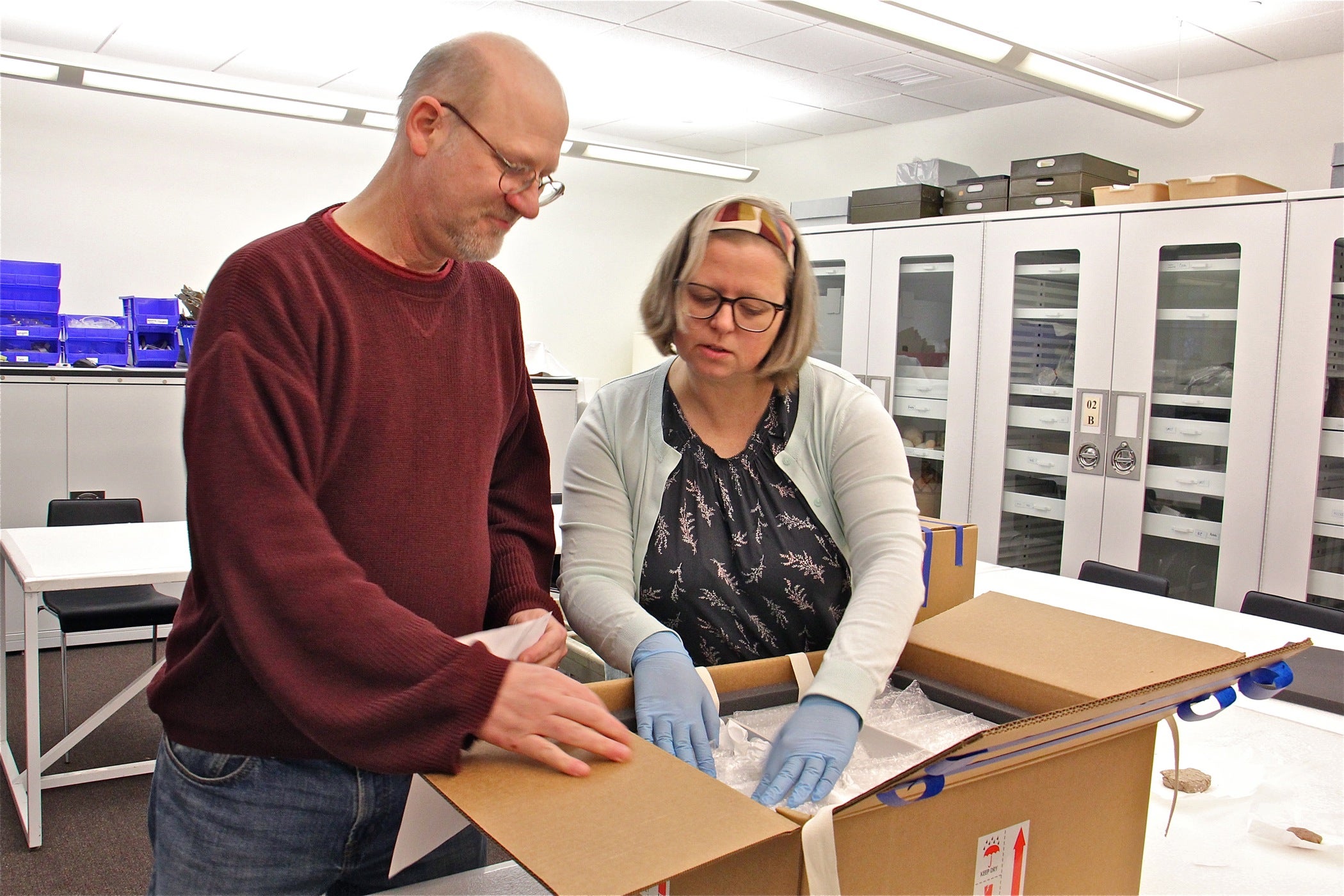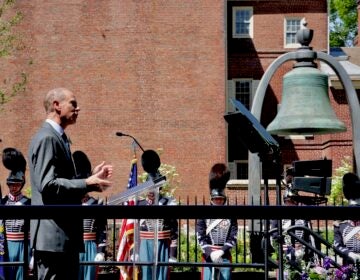After ‘long-term extended loan,’ Penn Museum sends ancient Iraqi artifacts home
Since the 1930s, the Penn Museum has been holding and studying thousands of clay tablets from 2000 B.C. Today, hundreds are returning to Iraq.
Listen 1:46
A fragment of clay tablet at the Penn Museum carries information about a business transaction that took place in Ur about 4,000 years ago. (Emma Lee/WHYY)
This morning, staff members of the Penn Museum are driving down to Washington, D.C. to deliver three boxes full of ancient artifacts to the Iraq embassy. The hundreds of tiny clay tablets inside will be shipped back to Iraq.
From 1922 to 1934, archeologists with the University of Pennsylvania and the British Museum unearthed thousands of clay fragments with ancient writing on them, about 4,000 years old.
The fragments are receipts, stamped in clay with a cuneiform reed, keeping track of a variety of transactions from around 2000 B.C.
“This is from the Ur III [dynasty], a very bureaucratic period in Mesopotamian history,” said research associate Brad Hafford. “They kept a lot of records.”
The clay tablets, about two inches square, eventually outlived their usefulness as receipts. Years later they were used as structural aggregate for the construction of a temple.
“They ended up as trash,” Hafford said. “They were used as packing to stabilize a floor.”
Now they have value again as tiny pieces of information about the ancient world. Under an agreement between the Iraqi government, the British government, and the Penn Museum (Iraq achieved independence from the British in 1932), half of the excavation findings could be moved out of the country for study.
“All the tablets were shipped out to be studied because no one in Iraq at the time could read them,” Hafford claims. “So they were going to be studied and given back.”
After more than 80 years, today is the day.
“Each one is put in a small piece of tissue paper,” said Katy Blanchard, the keeper of the Near East collections at the Penn Museum, demonstrating how each of the 387 tablets is individually folded into acid-free paper.

Once wrapped, each tablet is slipped into its own bubble wrap pocket, and stacked in a shipping box.
At the embassy in Washington, the Iraq government will take possession and likely send the tablets on to the National Museum in Baghdad. Unlike 80 years ago, Iraq now has the facilities and scientists to adequately preserve and study ancient artifacts.
But this return is not repatriation, Hafford said.
“Although repatriation means giving back to the country of origin, and we are doing that, it has taken on the meaning of getting things that have been looted or stolen,” he said. “These were excavated under a perfectly legal permit, and we had always promised to give them back. So essentially we are giving back a very long-term extended loan.”
Over the last several decades, the Penn Museum has incrementally returned a portion of the artifacts, depending on the status of their study and their stability for shipping. After this shipment, there will still be about 3,500 pieces left to sort, many of them too small to have anything significant to reveal about ancient Sumeria.
WHYY is your source for fact-based, in-depth journalism and information. As a nonprofit organization, we rely on financial support from readers like you. Please give today.





